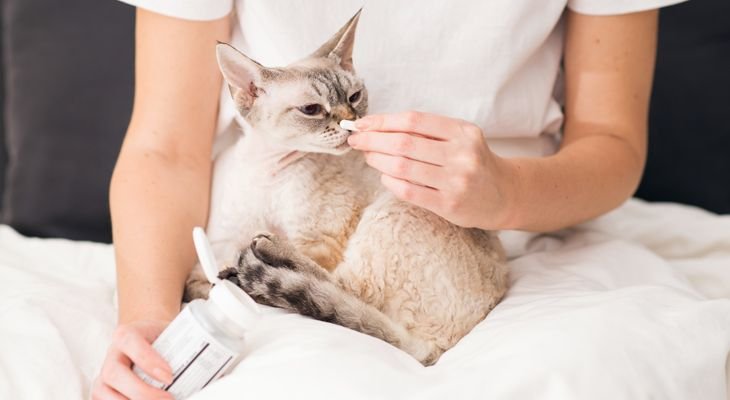
Pancreatitis is rare in cats, but can be very serious. It comes in two forms: chronic and acute, with chronic being more common for cats. The disorder happens when something triggers the pancreas to start destroying its own tissue.
Function of the Pancreas
This V-shaped organ is small—a cat’s pancreas weighs only about six ounces—but has big responsibilities. It sits between a cat’s duodenum and left kidney and controls both endocrine and exocrine functions.
Endocrine
Clusters of cells within the pancreas produce the hormones glucagon and insulin. Glucagon helps produce blood sugar. Insulin helps control the level of blood sugar in circulation. Diabetes mellitus, which disrupts normal metabolism of nutrients, is the most common pancreatic disorder.
Exocrine
Part of the pancreas produces and secretes enzymes that the small intestine activates and uses to break down proteins, fats and carbohydrates for digestion. If the enzymes do not make it to the small intestine, instead leaking out into the pancreas, they start to destroy the tissue of the pancreas itself. This is pancreatitis. If pancreatitis destroys enough cells, the cat cannot produce sufficient digestive enzymes, leading to an even more serious condition called exocrine pancreatic insufficiency (EPI).
Causes and Risk Factors
While the cause of pancreatitis is unknown, researchers have several theories. These include:
- A defect in the cat’s natural defense mechanisms
- High-fat diet
- Exposure to insecticides or other poisons
- Infections
- Metabolic disorders, including having too much calcium in the bloodstream
- Physical trauma, especially to the abdomen
- Parasitic infection
- Certain medications, including anti-cancer drugs and antibiotics
- Liver disease
- Inflammatory bowel disease
- Bacteria migrating from the intestines to the pancreatic duct
- Genetics may be involved, as Siamese and domestic shorthair cats appear to face an elevated risk
Symptoms
Unfortunately, the symptoms of pancreatitis mirror those of many other conditions. Symptoms include dehydration, weight loss, loss of appetite and lethargy. Other signs of pancreatitis are jaundice, elevated heart rate and changes in breathing.
In more advanced cases, vets may notice heart arrhythmias, infections, breathing troubles and, eventually, hemorrhaging.
Diagnosis
Since pancreatitis shares many symptoms in common with other disorders, your vet will need to rule out other things before making a diagnosis. After a physical exam, he or she may order blood tests, urine tests, ultrasounds and/or X-rays. Biopsies are the most conclusive, but vets seldom perform this test as it is painful and hard on an ailing cat.
Treatment
If your cat is vomiting or in pain, your veterinarian will address these symptoms by administering appropriate medications. Dehydration—frequently seen in cats with pancreatitis—can be reversed with supplemental fluids.
Your vet may advise a bland diet of low-fat, easy-to-digest food. In some cases, your vet might want to tube-feed a cat that refuses to eat. Appetite stimulants, B-12 injections and supplemental pancreatic digestive enzymes may help right nutritional imbalances.
If your cat stops eating, is listless or in pain, call our office right away. Never give your cats painkillers intended for humans, as these are dangerous for cats. Instead, we can help devise the best course of treatment to restore your cat’s good health.
